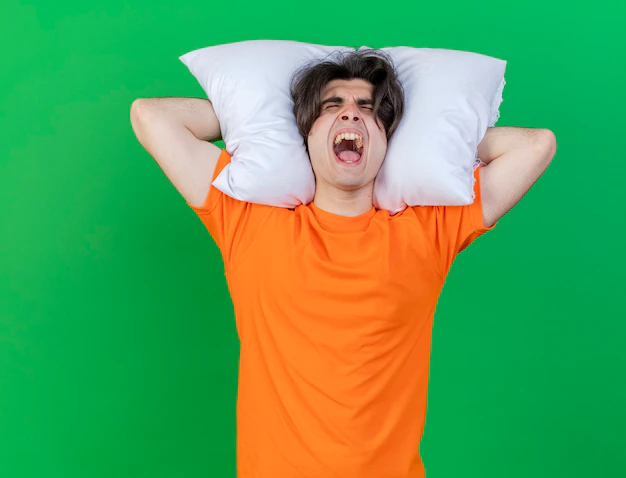Help. It’s Too Loud to Sleep!

Excessive noise can interfere with sleep and make it difficult to fall and stay asleep. Here are some tips for dealing with noise and creating a quieter sleep environment:
- Use earplugs or noise-cancelling headphones: Earplugs and noise-cancelling headphones can block out noise and help you fall and stay asleep. They’re especially helpful if you live in a noisy environment or if your partner snores.
- Use a white noise machine: White noise machines can produce a steady, soothing sound that can help mask outside noise and promote sleep. They can be especially helpful for people who are sensitive to sudden noises such as car horns or barking dogs.
- Keep your bedroom quiet: If possible, keep your bedroom quiet by closing windows, doors, and curtains. Use heavy curtains or shades to block out outside noise, and make sure your door and windows are well-sealed to prevent noise from entering.
- Use a fan or air purifier: Fans or air purifiers can create a gentle background noise that can help mask outside noise and promote sleep. They can also help circulate air and regulate temperature, creating a more comfortable sleep environment.
- Consider soundproofing your bedroom: If you’re dealing with persistent noise problems, consider soundproofing your bedroom. This can involve adding extra insulation, sealing gaps in windows and doors, and installing sound-absorbing materials on walls and ceilings.
In conclusion, excessive noise can interfere with sleep and make it difficult to fall and stay asleep. By using earplugs or noise-cancelling headphones, using a white noise machine, keeping your bedroom quiet, using a fan or air purifier, and considering soundproofing your bedroom, individuals can create a quieter sleep environment and promote better sleep quality. If noise continues to be a problem, it’s important to seek medical attention to identify the underlying cause and determine the best course of treatment.
